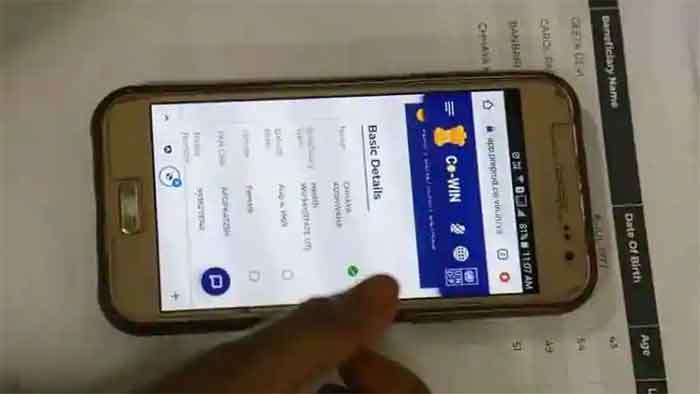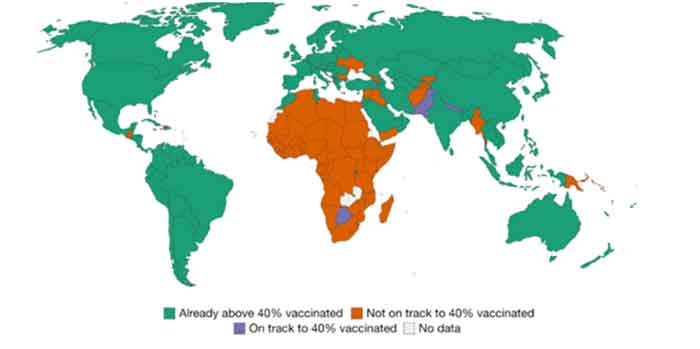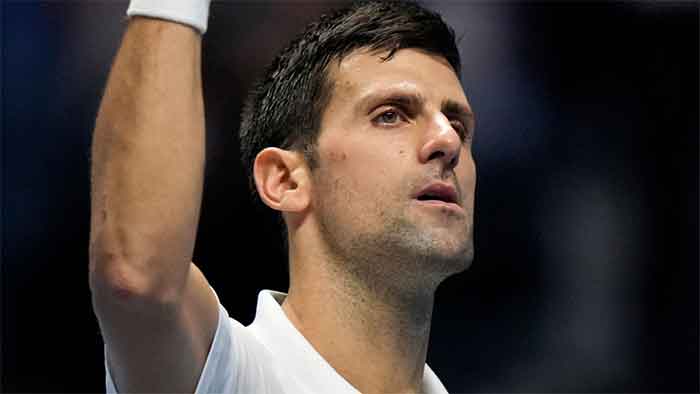
As the country recuperates from the devastating second wave of Covid-19, vaccination has become the only and the most effective possibility to beat the virus. But getting vaccinated isn’t as simple as it sounds. Saraswati Devi*, age 46, who lives in the outskirts of Almora town (Uttarakhand), is very anxious these days because she is finding it difficult to get her daughter vaccinated for Covid-19. In a detailed conversation, she said, “I’ve been trying to book a vaccine slot through the phone for my daughter, who is 18+, but I am finding it very difficult”. She adds, “firstly the form fill-up procedure (a mandatory registration process where you get an OTP on the phone in order to make an appointment) is tricky, besides, slots are filling up very quickly on the phone and we aren’t even sure when to look up for the slots since there is no designated time for when they become available”.
Saraswati Devi, who works as a house help, has been trying to book a vaccination slot from the past couple of weeks, ever since the vaccine slot for 18-44 age group category, was opened on the government-sponsored CoWin portal. Saraswati Devi’s story is one among the many in rural India who are struggling to book online appointments for vaccination. She is among the 70 million citizens who are registered on the CoWin portal but are struggling to get vaccinated and even if they are lucky to book the slot, vaccine insufficiency, and closure of several vaccination centers is another issue.
Vaccination for 18+ in India is not an easy task. Uneven vaccine supply, digital divide (dependency on technology i.e., smartphone and a stable internet connection, language barrier), distance to the nearest vaccination center, vaccine hesitancy, and gender-based access issues are some of the hindrances people are facing right now. The digital divide is proving out to be a fundamental issue in the vaccination drive. In a recent special hearing on Covid-19 management and planning, the Hon. Supreme Court of India also took cognizance of this issue – the vaccination program outreach and the digital divide. The honorable court questioned the central government on their preparation and planning for vaccination of people belonging to the age group of 18-44, who were most suspectable in the second wave of Covid-19 infection. The court focused on how the central government is going to plan an effective vaccination drive in rural India as well as among citizens who do not have access to several means when it comes to registration for vaccination. In response, the center government argued that the digital divide won’t be a problem in rural areas since the government is also going to put Aadhar card-based walk-in vaccination in place. This argument interestingly invokes another debate around Aadhar card-based program’s viability. Data suggests that not everyone in the country still owns an Aadhar card with correct information on it.
Vaccination program being digital in nature is widening the existing digital divide in India. It is an exclusionary process and supports the ones with privileges such as education, exposure, location, etc. For instance, firstly a smartphone is a precursor to getting vaccinated, which isn’t a common gadget esp. in rural and remote areas, among the vulnerable section of the society, and among women. As Saraswati Devi, who owns a feature phone explains, “I don’t have a smartphone; I asked a neighbor for help or if I could borrow his smartphone for vaccine booking”. Similarly, Savita Singh*, age 28, who lives in Govindpuri village, Hawal Bagh block of Almora district echoed similar concerns. During a telephonic interview with Savita, she explained how the unavailability of a smartphone and the remoteness of her village are discouraging people in the village for vaccination. She said “We don’t have smartphones here in the village, in fact, people just keep feature phones for basic use. A lot of people don’t know how to even operate smartphones either. The vaccination camp in our block is also closed due to vaccine unavailability. Other centers are quite far off, and the lockdown makes it further difficult to find a public mode of transportation”.
Further, the digital divide is not just rooted in the lack of a smartphone. Unstable internet connectivity and poor network connection are among the second set of problems that are hampering the vaccination progress in the country. Renu*, age 36, who lives close to Almora town said how “I’ve been trying to book a slot from last few weeks but unable to do so. Sometimes when I am almost at the end of the booking process, the internet on my phone disconnects. I don’t think I will be able to make an appointment on the phone at all. It’s almost like playing fastest finger first. I will rather try a walk-in appointment if my employer gives me a day’s leave”. Similarly, Shabnam*, age 32, explains “I have a particular spot on the terrace at my home where phone internet works. I tried few times to get registered for the vaccine but failed. Going to the terrace every time for internet connection isn’t possible for a person like me who has to also take care of the household chores”.
Thirdly, language and proficiency are also important issues. As Prema Kanwal*, age 38, resident of Sinar Gaon, Almora elaborates “many elderlies and middle-aged residents of our village aren’t well versed in English or even Hindi. We ask the young in the community to help us with the phone a lot of time just because I feel like mobile phones aren’t very user friendly if you’re not well versed in English/Hindi language”. She further says, “my in-laws and many of the same age group people only speak and understand ‘Pahari’ and all the information around Corona and vaccination is predominantly in English or Hindi. We have to translate everything to them so that they understand”.
These narratives highlight the challenges people are facing in order to get vaccinated. Interestingly, a lot of these problems related to the digital divide get amplified due to uneven gender-related access issues as well. For instance, according to Lokniti-CSDS National Election Study 2019, fewer women own smartphones in the country with a gap of 20-22% as compared to men in the 18-44 years category. Digitization of the vaccination program has put women in a disadvantaged position. According to govt. data (the Union Health Ministry), there is a 15% gender gap on the CoWin app which translates into how only 46% of women are vaccinated as compared to 54% men across the country. It can be argued that these numbers are skewed due to a gap in sex ratio but the factors that are mostly contributing here are around gender-related access and privilege.
Therefore, in order to boost up the vaccination program authorities need to address the above-mentioned imperative issues namely the digital divide, gender-related gap, vaccine unavailability in rural areas in particular because as we know rural India is the hardest hit in the second wave of infection across the country. Sadly enough, a small state like Uttarakhand has recorded approximately 7,400 deaths from January 2021 till June 2021. These alarming numbers are a strong reminder to take firm actions before the third wave hits us again.
Note: *Names of the respondents have been changed due to privacy and ethical concerns.
Sadaf Javed , Ph.D. Candidate/ Teaching Assistant, Department of Geography, Rutgers University, USA
GET COUNTERCURRENTS DAILY NEWSLETTER STRAIGHT TO YOUR INBOX













































